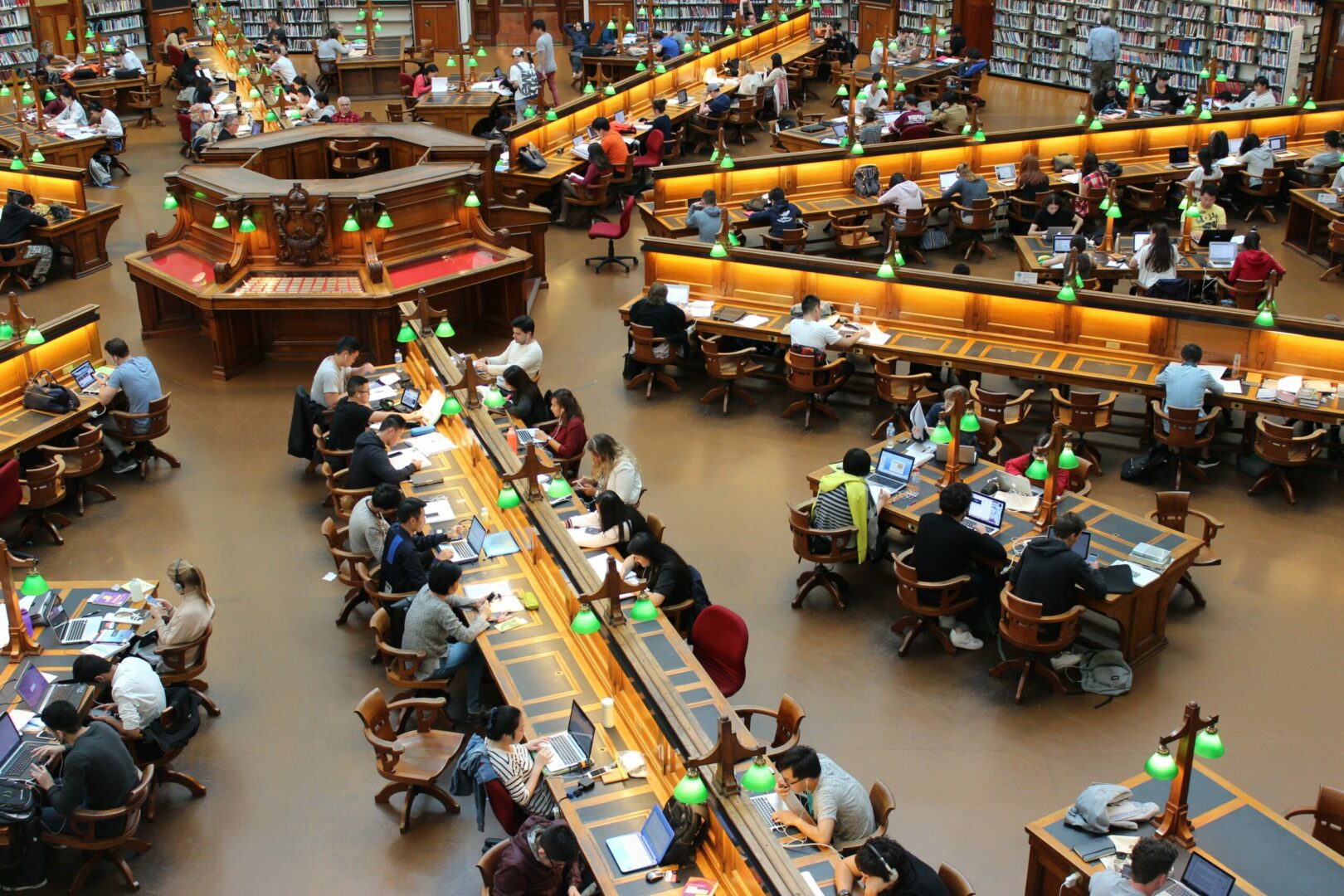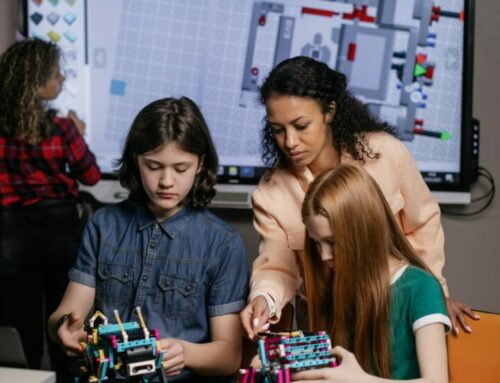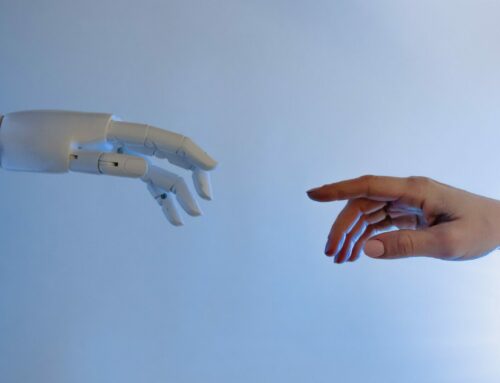The Emerging Learning Society
Patrick Blessinger, Habiba Chaoui, Hari Kamali, and Inge Rozendal
The advent of the Digital Revolution (also known as the Third Industrial Revolution – circa 1960 CE to 2000 CE) ushered in the Information Age. This period was characterized by the ubiquitous use of information and communication technologies, especially digital technologies such as computers, robotics, and the internet. During this period, relatively simple data-based systems (to process raw facts) gradually developed into more sophisticated information-based systems (to support human decision-making) and eventually developed into more complex knowledge-based systems (to generate new knowledge).
At each level of processing (data to information to knowledge), more meaning, context, and value are being added to the sense-making process. These systems are, if effective, extensions of human intelligence. Since there are inherent limitations and constraints on what the brain and nervous system can do, humans use their intelligence to design and develop artificial means (for example, tools such as computers and data gathering instruments) and abstractions (for example, theories and mathematical models) to overcome biological constraints. This ability creates a virtuous cycle of knowledge development which helps explain the exponential explosion of knowledge in the last few hundred years.
The study of knowledge is known as epistemology and is closely related to ontology, the study of reality. There exist several theories of knowledge, from scientific to philosophical perspectives. Simply put, knowledge is the condition of possessing a high degree of awareness and understanding of something. Knowledge can be categorized in different ways. One useful way to categorize knowledge is to classify it under the following categories: factual, conceptual, procedural, and metacognitive.
This classification structure is one of the more useful ways to organize knowledge because it is based on the taxonomy of educational objectives which has become widely used in educational settings in some parts of the world. Not only has universal education helped create a knowledge explosion but it has also, with its focus on higher-order thinking, led to a significant increase in human intelligence (as measured by IQ scores) around the world (Flynn Effect). The increase in human intelligence over the past century is also due to improvements in health, medicine, and nutrition. This suggests that human intelligence is shaped, to a large degree, by the social environment (for example, formal education and other social conditions). Hence, formal learning through education has been and will continue to be a central component of the emerging learning society.
IQ, intelligence quotient, is one way to estimate (through standardized tests) a person’s general problem-solving ability. Other common ways to measure a person’s intellectual performance are aptitude tests and academic achievement tests. Aptitude tests measure one’s propensity to succeed academically (that is, to learn). In some countries, these are used as college entrance tests. Academic achievement tests measure a student’s success in learning the content taught in schools and universities and are the tests that most people are familiar with and accustomed to.
The different, interrelated elements of knowledge suggest the complex nature of knowledge. Factual knowledge consists of basic facts and details about a topic. Conceptual knowledge consists of the interrelationships and underlying mechanisms and themes of the facts and details (for example, principles, theories, models, and taxonomies). Procedural knowledge refers to how to do something (for example, skills, techniques, procedures, and methods). Metacognitive knowledge refers to awareness of one’s own thinking and learning. Metacognitive knowledge can further be broken down into three subtypes: strategic knowledge, cognitive task knowledge, and self-knowledge.
A key insight about the taxonomy is that knowledge is viewed as foundational – not the only focus of learning. Although knowledge is extremely important, it is, nonetheless, still the lowest level of learning. This level, therefore, represents low-order thinking. In order for learners to engage in higher-order thinking, which, presumably, should be the aim of all educational institutions, learners must also consistently operate at all levels of the taxonomy (that is, remember, understand, apply, analyze, evaluate, and create) over long periods of time – the long cycle of formal education. This realization has major implications for educational institutions in how the curriculum is designed, how instruction is provided, and how deep learning takes place.
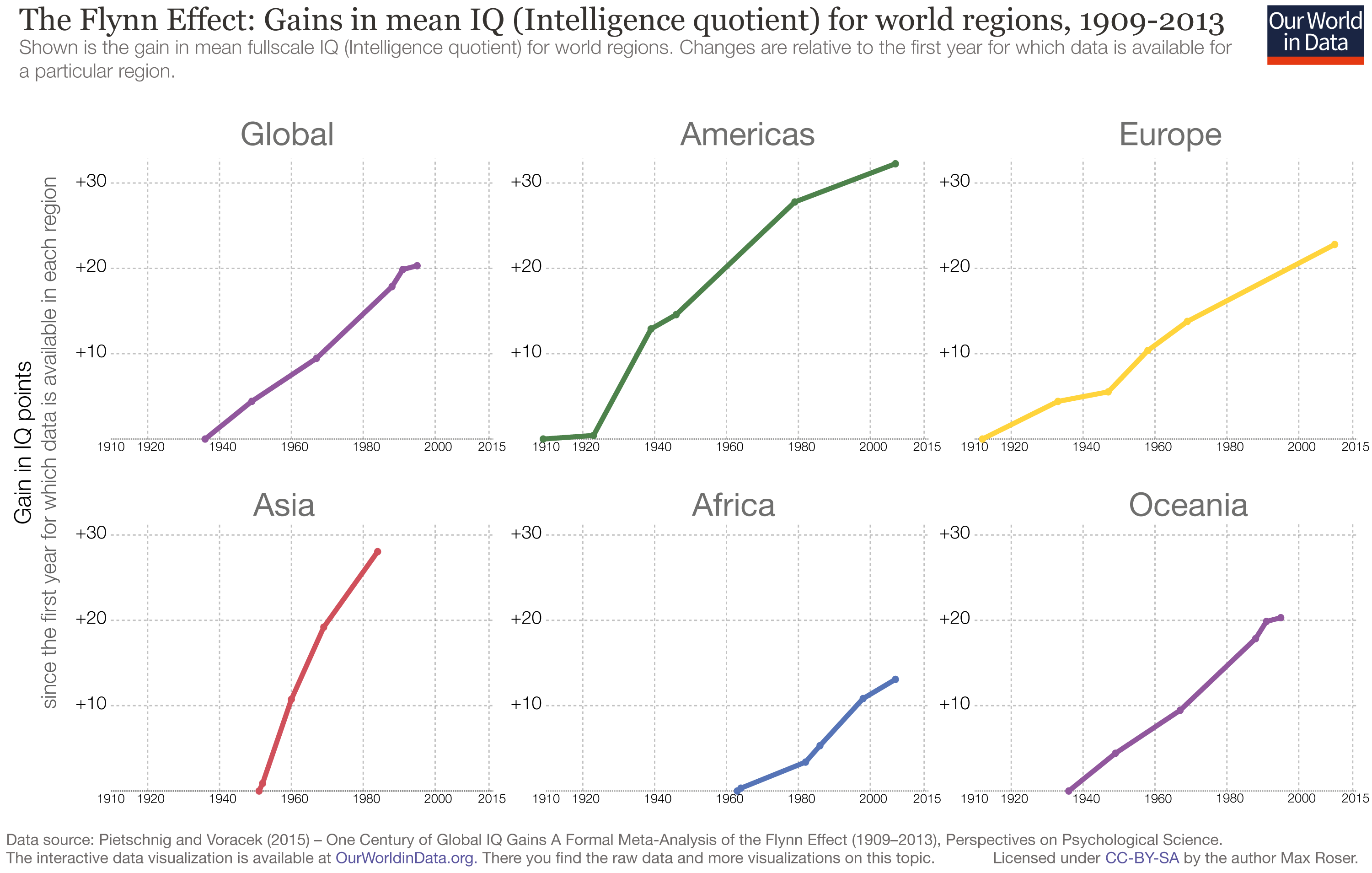
From knowledge society to learning society
To effectively engage in higher-order learning, individuals should not only have a deep understanding of the facts and details of the topic but they should also be able to apply that knowledge in complex and unstructured contexts. This is important because in the highly fluid modern age, characterized by increasing risk, uncertainty, and complexity, change is the primary constant. The notion that learning stops after one completes high school or university has now become an obsolete notion. Learning is a lifelong and lifelong process.
For instance, when educational systems and society at large, through free or low-cost non-formal learning platforms, focus on building the four core types of knowledge, they help cultivate learning societies. For example, we have seen a dramatic rise in non-formal learning platforms such as Khan Academy, MIT OpenCourseWare, OpenStax, edX, Stanford Online, OpenLearn. Billions of people around the now use these platforms to help them learn a large variety of topics. Some of the most forward-thinking universities in the world are taking the lead in developing these platforms for the common good and to help foster a more educationally diverse learning society.
Other platforms like YouTube have been producing an astonishing number of educational videos. About half of the nearly three billion YouTube users go there specifically to watch educational videos. As with formal learning, this suggests a huge demand for non-formal learning. But do these platforms produce high-quality learning? With Khan Academy, for instance, several studies by independent researchers have shown a positive effect on learning by students using Khan Academy lessons to supplement (not replace) their formal school lessons. These types of platforms have the potential to foster a richer learning experience.
Learning can be defined as a change in cognition (knowledge and values) and behavior (skills and habits) as the result of experience (for example, through instruction, thinking, and doing). In turn, a learning society can be defined as a society that promotes a culture of learning by supporting and motivating people and groups to continually learn through collaboration among all sectors. In other words, it provides a mechanism to continually learn throughout the entire length of their lives – lifelong and lifewide learning.
A learning society, therefore, is supported by a culture that values education, knowledge, and learning, and puts in place a comprehensive set of systems (formal and nonformal) with that aim in mind. A learning society fosters a culture of learning in order to drive political, economic, social, technological, and environmental progress. Learning is treated as an activity and social process and not strictly confined to one physical place. Hence, the idea of a learning society is broader than a knowledge society in that it also addresses ethical and political concerns such as rights, justice, freedom of opportunity, and self-determination.
A learning society is a growing and evolving entity. Like any other process of this kind, the factors that drive social evolution are numerous and complex and they are dependent on the behavior of the different entities that constitute the whole. Individuals are a catalyst in the transformation of a learning society, which in turn, influences the individuals, thereby creating a cyclical effect. This is why it is so important that all societies have high-quality educational systems as well as high-quality learning platforms that support and enhance those systems.
Transitioning from a hyper-connected knowledge society to a highly diversified learning society represents a continuing paradigm shift in the social evolution of society. A learning society moves beyond simple knowledge access because knowledge for the common good should be available to everyone as a basic human right. Thus, a learning society focuses on the next stage of social evolution, namely, opportunities for full participation by all in learning throughout every stage of their lives.
People should not be limited in how they engage in high-quality learning because of their age, ability, or any other factor. Since knowledge is a powerful form of human capital (maybe the most powerful form), perhaps the best way to empower people is to equip them with meaningful and useful knowledge that will increase their human agency.
The learning society will coincide with Society 5.0 which will start to emerge in the coming decade. As with any development, the diffusion of the learning society will be spread out at different rates across the globe. Some nations will be early adopters and some will be late adopters. The learning society will be supported by four foundational pillars: 1) treats learning as a basic human right, 2) recognizes the necessity of lifelong and lifewide learning in contemporary society, 3) supports a comprehensive learning ecosystem to address all the varied needs of society, and 4) supports the goals of sustainable development for a just and sustainable society. Each of these pillars has major implications for societies around the world.
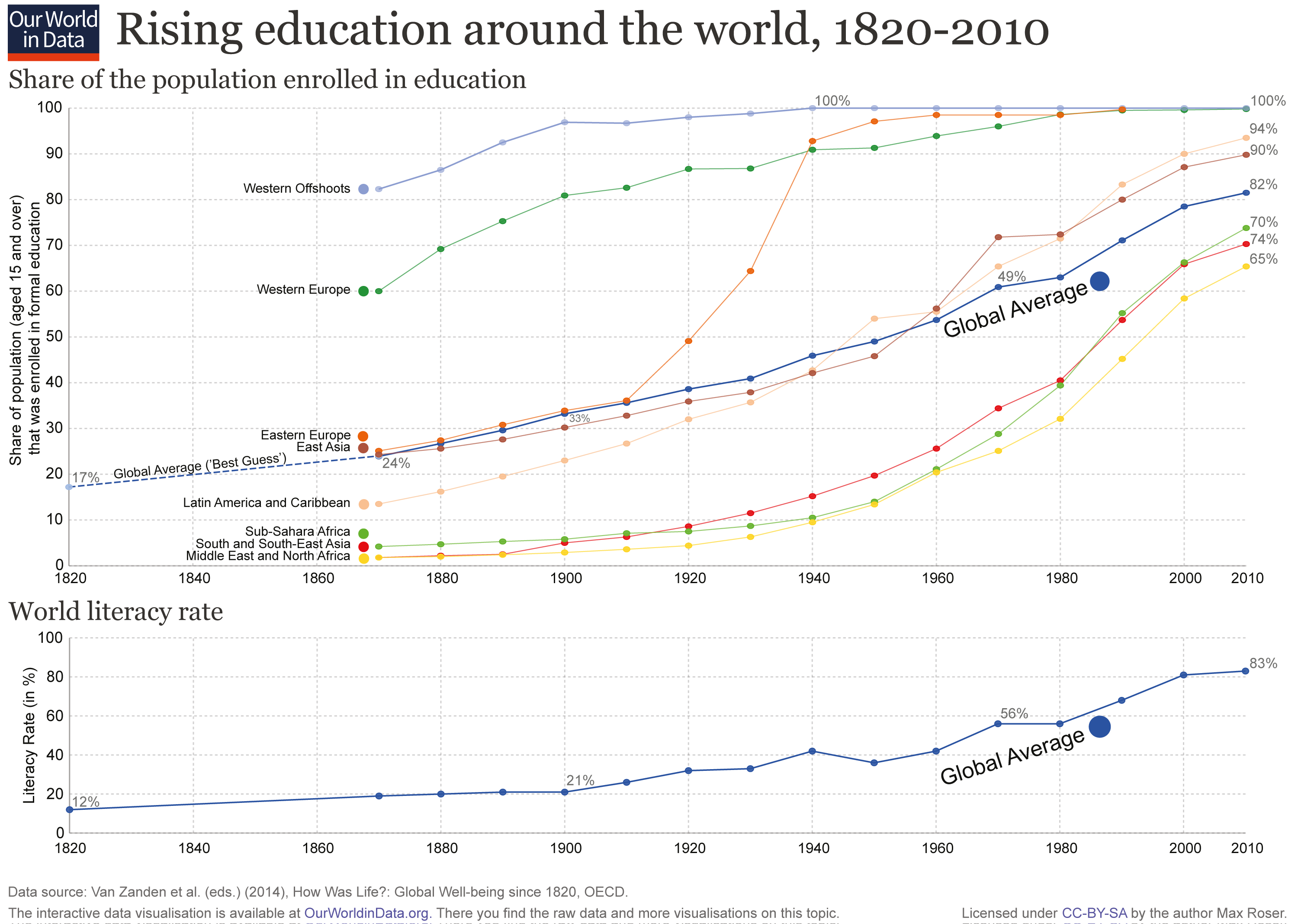
Learning Ecosystem
The development of the learning society is the result of intensive globalization and the need for adaptable knowledge workers. In today’s world, it is not just knowledge and education that is key to economic, social, technological, and environmental development but, equally important, it is the ability to continually learn and adapt cognitively and behaviorally throughout the entirety of one’s life as well as the ability to adapt emotionally and socially.
People today must not only become lifelong and lifewide consumers of knowledge but they must also become more adept at becoming lifelong and lifewide producers of knowledge. In addition, the decreasing shelf-life of much of today’s knowledge also drives people to continually learn and relearn throughout the course of their lives.
Having many levels and types of high-quality educational institutions is one important element of a learning society. No one type of educational institution can possibly address all the varied and complex needs of a fast-changing society so institutional diversification is important (for example, non-formal learning platforms, continuing/further education, basic education, vocational-trade schools, community colleges, four-year colleges, open universities, research universities, independent institutes, and research centers, among others).
There is a need for a variety of learning providers, including organizations and individuals from the public, private, and NGO sectors who offer instruction and content to learners of all ages. A learning society values and depends on all parts of the learning ecosystem and it should encourage new entrants in order to spur innovation and modernization.
Learning capacity is the ability of people to acquire, use, and produce knowledge. Since society is made up of individuals, by increasing the learning capacity of individuals, the learning capacity of society is also improved. Thus, a learning society is focused on more than just educational reforms and 21st-century skills. Rather, it is also concerned with creating a culture of learning that is focused on knowledge production, higher-order thinking, problem-solving, and critical-creative thinking in order to increase the total learning capacity of society.
If the different types of knowledge are the food, water, and oxygen that people need to survive in today’s world, then learning is the lifeblood of any society. Without continual high-quality learning, nations will lose their competitiveness and their ability to drive innovation and economic development. One example of a learning society is the citizen science movement. Citizen science is the collaboration and participation of any citizen (regardless of age, vocation, location, educational level, socio-economic status, etc.) in scientific research in order to increase the knowledge-base of science for the benefit of society and the world.
The main strength of any society lies in its human capital. In order to meet the increasingly complex challenges of the modern era, it is necessary to promote human activities that drive social, cultural, and economic development. The learning society theory, when adapted and used wisely, provides the rationale for individuals to participate in high-quality education and other types of learning throughout their lives. In conclusion, a learning society provides a lever and catalyst for the continual regeneration of knowledge, skills, and behaviors needed for the fast-approaching future.
Patrick Blessinger is president and chief scientist at the International HETL Association. Habiba Chaoui is a professor at Ibn Tofail University, Morocco. Hari Kamali is an associate professor at Far Western University, Nepal. Inge Rozendal is a consultant at the University of Delft, The Netherlands.
Suggested Citation:
Blessinger, P., Habiba Chaoui, H., Kamali, H., and Rozendal, I. (2022). The emerging learning society. Higher Education Tomorrow, Volume 8, Article 7. https://www.patrickblessinger.com/the-emerging-learning-society
Copyright © [2022] Patrick Blessinger, Habiba Chaoui, Hari Kamali, and Inge Rozendal
Disclaimer
Opinions expressed in this article are those of the authors, and as such do not necessarily represent the position(s) of other professionals or any institution.

